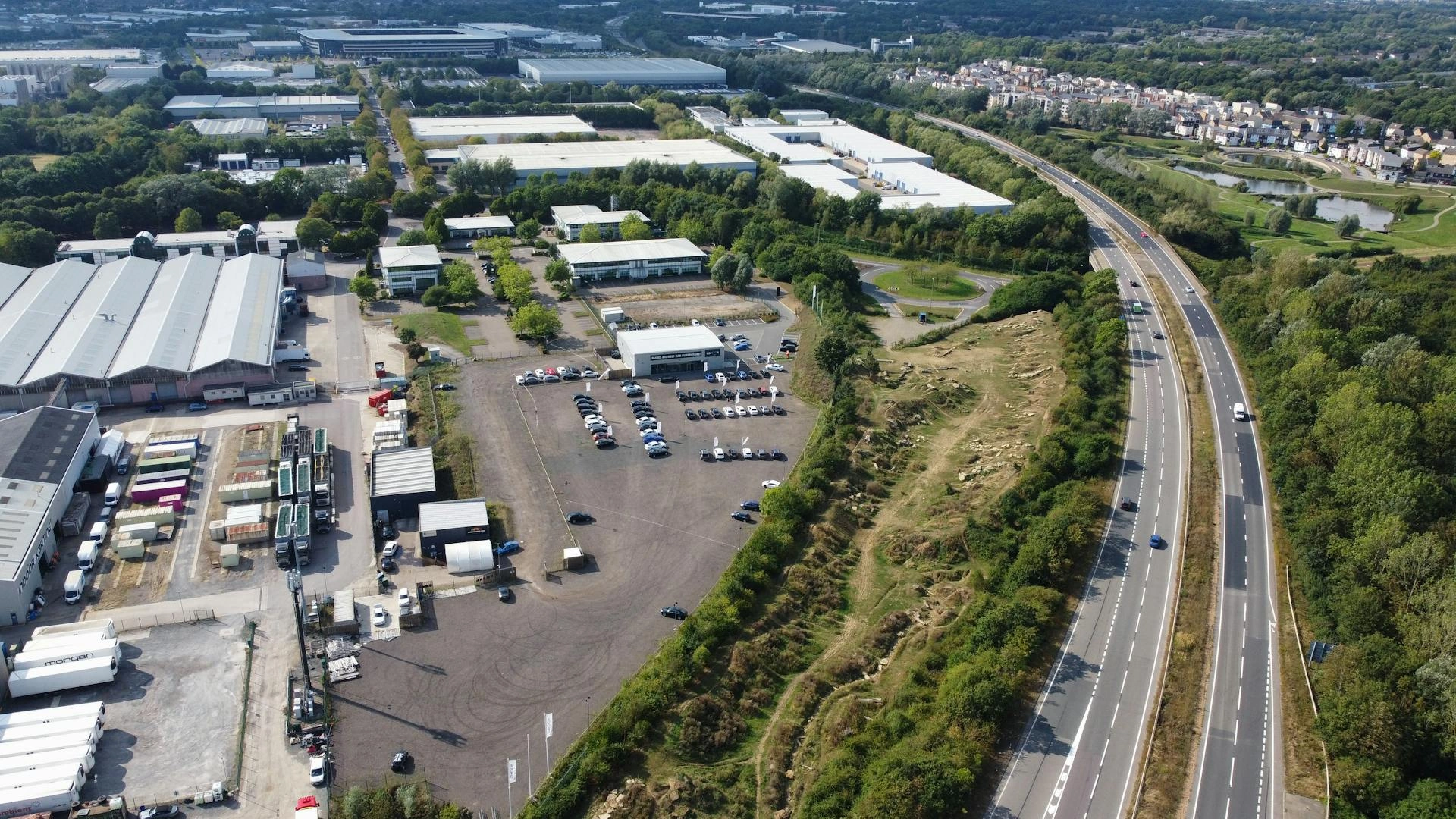Rising temperatures have companies hot under the collar

John E. Kaye
- Published
- Home, Sustainability

Looking at over 12,000 transactions made by firms across the US between 2000-2015, a recent study has measured how companies fared in the face of global warming. Cláudia Custódio of Imperial College Business School discusses the outcome
Climate change is undeniably one of the big challenges of our world. In academia, the public domain and industry, the general consensus is that it’s in everyone’s interest to curb the impending ecological crisis. Non-governmental organisations such as the United Nations via its Sustainable Development Goals – have unveiled measures to curtail rising temperatures and bring about a broader shift to more sustainable methods throughout their business operations.
Whilst these initiatives, commitments and schemes reflect a shared awareness of the daunting challenge at hand, do firms truly understand the economic mechanisms and implications of climate change?
Since the Business Roundtable of 2019 – a seemingly-momentous event in signalling a near industry-wide shift in operations – countless corporations have committed in some way or another to doing their part to curb climate change. Moving away from non-renewable energy to limiting the carbon emissions produced in day-to-day operations to net zero, major companies have demonstrated their commitment to their purpose, awareness and responsibility.
Severe disruption
It won’t come as a surprise to hear that a hotter planet can hurt businesses too. We’re already aware of the vulnerability of certain sectors such as agriculture. There is evidence that severe weather – flooding, storms, heatwaves and fires – can lead to faltering supply chains and disrupted business operations. Meanwhile, some companies benefit from climate change as demand rises for products and services such as air conditioning, bottled water, and electricity.
There is still limited evidence about the long-term impact of climate change business performance. Working alongside In researchers from Nova School of Business and Economics, Imperial College London and the University of Zurich, I undertook research to take an in-depth look at the impact of rising temperatures on businesses. We wanted to understand companies manage the impact of climate change and determine if there was a clear, quantifiable metric through which businesses could understand the magnitude of this effect.
Looking at over 12,000 transactions made by firms across the US between 2000-2015, we measured how these companies fared in the face of global warming. We also looked at how suppliers of the same company fared when temperatures rose in their various geographic locations. In doing this, we could account for fluctuations in demand for a finished item or product such as an increase in demand for ice cream but a decline in supplies of chocolate, due to the impact of rising temperatures in different regions.
When the local temperature on average increased by 1°C, business sales dropped by 2%
We found that, when the local temperature on average increased by 1°C, business sales dropped by 2%. Meanwhile, the data shows that suppliers of the same client from regions less affected by warmer climates didn’t experience the same drop. Based on our findings, one could assume a fall in sales would logically follow in proportion with rising temperatures – a 2°C rise in temperature, for instance, would lead to a 4% fall in sales, and so on. But we know that as temperatures rise, the meteorological effects can be more severe and unpredictable, leading to even more significant disruption. We have also seen that bouts of extreme weather can precipitate even steeper declines in sales.
We wanted to offer an explanation on the relationship between there is such a global warming and business performance. We identified three major factors at play: declining employee performance under rising temperatures; company finances (or, more appropriately, a lack thereof) limiting firms affected by the changing climate from adapting – or moving; and the ease with which consumers could switch suppliers.
All three reasons hold merit. It’s no secret that when the weather is hot, staff productivity dips. Staff absences and higher temperatures make working conditions more difficult – particularly for heat-sensitive industries, like manufacturing. A seemingly small rise in average temperature can take a major toll on employee output. Meanwhile, a company’s financial situation can be both an enabler of adaptability, or a crippling brace. While larger firms may be able to up-root and move location or divert resources to different branches, cash-strapped businesses are seldom afforded the same luxuries. The ease with which consumers are happy and able to switch up their shopping habits, particularly when the product being sold is somewhat standardised and there’s a possibility that production – due to employee output declining – could falter, is yet another worry for businesses on a planet that’s getting warmer each year. Geography may even be a sub-factor here – the greater the distance between a supplier and consumer, the more transactional the relationship, and the more easily the client finds a substitute than if there’s a personal or local connection.
More awareness
While the study looked specifically at the USA, it could be applied, to anywhere in the world – particularly those regions more exposed to climate change. It is therefore key that policymakers and business leaders understand how a rising global temperature could affect businesses. There needs to be an awareness of the challenges posed by climate change on a macroeconomic scale as well as on an organisational level. Looking specifically at a company level, hotter climates could see incomes affected, with firms in highly competitive sectors going into administration. Decisions made at a higher organisational level, have a bearing on the wider economy and vice-versa. Understanding how and when to intervene, therefore, is crucial to dealing with one of the many fallouts of the climate crisis.
About the author
Cláudia Custódio is an associate professor of finance at Imperial College Business School in London
Imperial College Business School Socials
RECENT ARTICLES
-
 Strong ESG records help firms take R&D global, study finds
Strong ESG records help firms take R&D global, study finds -
 How residence and citizenship programmes strengthen national resilience
How residence and citizenship programmes strengthen national resilience -
 Global leaders enter 2026 facing a defining climate choice
Global leaders enter 2026 facing a defining climate choice -
 EU sustainability rules drive digital compliance push in Uzbekistan ahead of export change
EU sustainability rules drive digital compliance push in Uzbekistan ahead of export change -
 China’s BYD overtakes Tesla as world’s largest electric car seller
China’s BYD overtakes Tesla as world’s largest electric car seller -
 UK education group signs agreement to operate UN training centre network hub
UK education group signs agreement to operate UN training centre network hub -
 Mycelium breakthrough shows there’s mush-room to grow in greener manufacturing
Mycelium breakthrough shows there’s mush-room to grow in greener manufacturing -
 Oxford to host new annual youth climate summit on UN World Environment Day
Oxford to host new annual youth climate summit on UN World Environment Day -
 Exclusive: Global United Nations delegates meet in London as GEDU sets out new cross-network sustainability plan
Exclusive: Global United Nations delegates meet in London as GEDU sets out new cross-network sustainability plan -
 Fast fashion brands ‘greenwash’ shoppers with guilt-easing claims, study warns
Fast fashion brands ‘greenwash’ shoppers with guilt-easing claims, study warns -
 Private sector set to overtake government as main driver of corporate sustainability in 2026, report suggests
Private sector set to overtake government as main driver of corporate sustainability in 2026, report suggests -
 Sir Trevor McDonald honoured at UWI London Benefit Dinner celebrating Caribbean achievement
Sir Trevor McDonald honoured at UWI London Benefit Dinner celebrating Caribbean achievement -
 Historic motorsport confronts its energy future
Historic motorsport confronts its energy future -
 Protecting the world’s wild places: Dr Catherine Barnard on how local partnerships drive global conservation
Protecting the world’s wild places: Dr Catherine Barnard on how local partnerships drive global conservation -
 Europe’s HyDeal eyes Africa for low-cost hydrogen link to Europe
Europe’s HyDeal eyes Africa for low-cost hydrogen link to Europe -
 Fabric of change
Fabric of change -
 Courage in an uncertain world: how fashion builds resilience now
Courage in an uncertain world: how fashion builds resilience now -
 UAE breaks ground on world’s first 24-hour renewable power plant
UAE breaks ground on world’s first 24-hour renewable power plant -
 China’s Yancheng sets a global benchmark for conservation and climate action
China’s Yancheng sets a global benchmark for conservation and climate action -
 Inside Iceland’s green biotechnology revolution
Inside Iceland’s green biotechnology revolution -
 Global development banks agree new priorities on finance, water security and private capital ahead of COP30
Global development banks agree new priorities on finance, water security and private capital ahead of COP30 -
 UK organisations show rising net zero ambition despite financial pressures, new survey finds
UK organisations show rising net zero ambition despite financial pressures, new survey finds -
 Gulf ESG efforts fail to link profit with sustainability, study shows
Gulf ESG efforts fail to link profit with sustainability, study shows -
 Redress and UN network call for fashion industry to meet sustainability goals
Redress and UN network call for fashion industry to meet sustainability goals -
 World Coastal Forum leaders warn of accelerating global ecosystem collapse
World Coastal Forum leaders warn of accelerating global ecosystem collapse



























